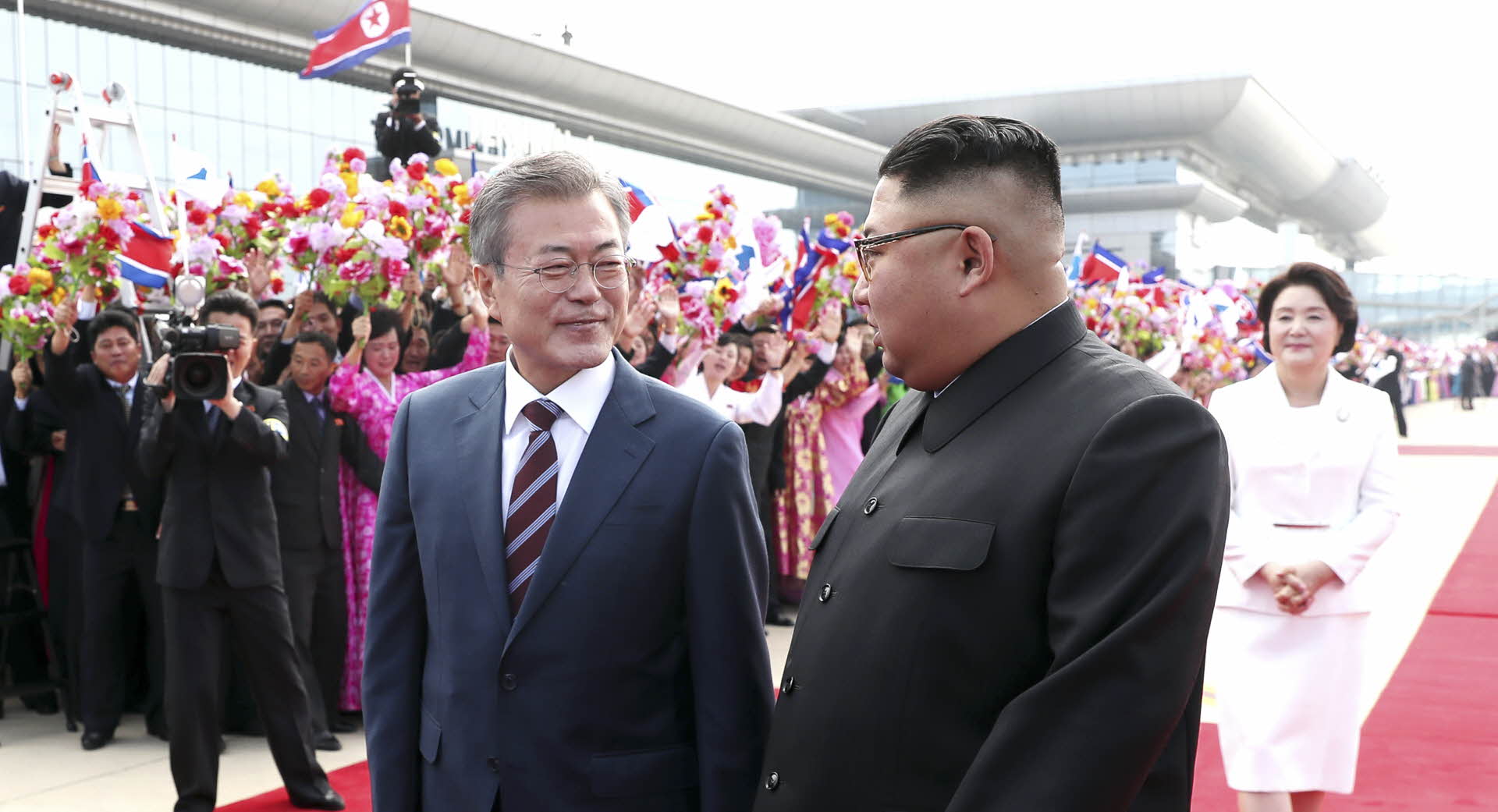A nation must think before it acts.
Donald Trump wasn’t the first U.S. president to float the idea of a summit with North Korea. Historian James Person at the Woodrow Wilson Center in Washington, D.C. has published declassified documents showing that President Jimmy Carter, in the late 1970s, had serious plans for a trilateral summit between the United States, North Korea, and South Korea to be held in Indonesia. The American and Indonesian governments had even agreed to a specific site for the summit, the island of Bali. The plans fizzled out, apparently because of lack of North Korean interest.
The document collection also shows that during a 1979 summit between Jimmy Carter and South Korean dictator Park Chung-hee, Carter pressed the latter hard to accept reduced levels of American troops. That the Carter administration wanted to pull back troops from Korea has long been known, but the dialogue is interesting in its own right. Park pushed back, claiming that North Korea’s overwhelming military superiority at the time would give South Korea a stark disadvantage should the U.S. pull back a substantial number of troops. Park argued that should the government increase military spending to the degree necessary, riots would erupt in the country among disenchanted civilians upset at spending shifts and higher taxes.
Carter argued that, particularly given South Korea’s industrial growth and economic success, the country should be able to afford to pay for their own defense, rather than free ride on America.
Does any of this sound familiar? (Of course it does.) There is a strong degree of historical continuity in North Korea as an economic factor for South Korea. It gravitates between being seen primarily as a burden, not least for national defense—as in the 1970s—and as a potential asset, as is the case today. The North Korea issue as an economic factor for South Korea is nothing new, whether it be the costs imposed by military tensions, or Korean unification as a vague, economic hope. South Korean officials have long spoken of unification and inter-Korean cooperation as a magic wand of sorts for economic growth. The idea is far from common and prominent only on the left. In a speech in January 2014, now-disgraced and imprisoned former President Park Geun-hye spoke of a “unification bonanza [통일 대박],” claiming vast potential economic gains from Korean unification. Last week, South Korean Minister of Unification, Cho Myoung-gyon, apparently cited economic cooperation with North Korea as the new engine of growth for a South Korean economy increasingly burdened by slacking growth numbers and structural problems.
Statements such as Cho’s are not just ideological, empty phrases. They are an indication of what the government actually believes and aspires to. Take the inter-Korean cooperation on railways, for example. On Saturday, November 24, South Korea said it had received an official exemption from the United Nations Security Council sanctions on North Korea to be able to proceed with the joint railway survey with North Korea without violating sanctions currently in place on the country. South Korea needs the exemption to be able to transmit fuel and other equipment whose delivery to North Korea is currently banned for UN member states. President Moon’s chief of staff, Im Jeong-sok, commented that the decision was an important step toward greater connectivity and economic growth in the whole East Asian region.
The U.S. agreed to the exemption, and it wouldn’t be accurate to cite this specific development as an example of a growing wedge between the U.S. and South Korea regarding North Korea policy. Nonetheless, it’s hard to deny that the U.S. and South Korea are pulling at different directions. And should North Korea backtrack in the diplomatic negotiations, every step of this nature makes it increasingly difficult for the White House to double down on sanctions and up the pressure once again should they want to do so.
Judging by the political mood here in Seoul, things are destined to get even trickier. President Moon’s approval ratings keep plunging. Though they are still fairly high compared to what South Korean presidents often tend to experience some time into their terms, his fall in support really has been remarkably steep. Among men in their twenties, for example, just in June this year, Moon’s approval rating was 81 percent. Now, in a poll conducted in the first three weeks of November by Gallup Korea, only 51 percent in the same group expressed support for Moon. Overall, Moon’s approval ratings stand at 52.5 percent. Faltering economic growth and unrelenting unemployment, particularly among young people, are the main factors. At the same time, the initial boost that Moon received from the diplomacy and summitry with North Korea appears to be fading, as the concrete successes are increasingly few and far between.
A common reaction among political decision makers, when things aren’t going their way, is to double down on what they’re doing, hoping that a bigger push of more of the same will finally do the trick and turn things around. Moon has made rapprochement with North Korea the answer to challenges both foreign and domestic, and there’s little indication that this will change in the short to medium term. In other words, South Korea will likely keep pushing economic cooperation projects with North Korea, despite the meager financial gains produced in the past, and despite the strain it puts on the alliance with the U.S.
All politics is local, both in North and South Korea. For Park Chung-hee, North Korea was South Korea’s main challenge, held up to justify grave violations of South Koreans’ human rights. For Moon Jae-in, North Korea is the solution to a wide range of problems. Neither approach was or is fully logical, but both make political sense—at least in the short term.




